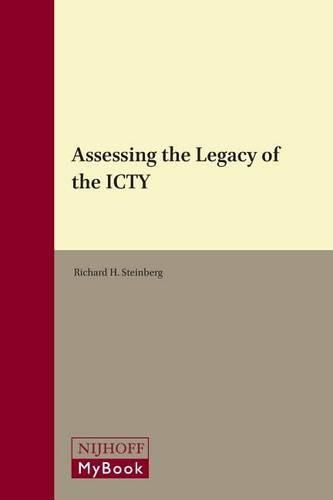Readings Newsletter
Become a Readings Member to make your shopping experience even easier.
Sign in or sign up for free!
You’re not far away from qualifying for FREE standard shipping within Australia
You’ve qualified for FREE standard shipping within Australia
The cart is loading…






This collection of essays assesses the legacy established by the most important international criminal tribunal since the Nuremberg and Tokyo war crimes trials, and considers what might be done to enhance or modify the legacy of the International Criminal Tribunal for the former Yugoslavia (ICTY), including improvement of the capacity of state courts in the region to prosecute violations of humanitarian law by using the Tribunal’s documents, evidence, law, and practice.
The essays are derived from a conference, Assessing the Legacy of the ICTY, which was convened in The Hague. Participants included over 375 stakeholders from the former Yugoslavia; officials from the Tribunal’s Chambers, Registry, and the Office of the Prosecutor; justice ministers and other government officials from Europe; and all elements of civil society-representatives of nongovernmental organizations, lawyers, and academics.
$9.00 standard shipping within Australia
FREE standard shipping within Australia for orders over $100.00
Express & International shipping calculated at checkout
This collection of essays assesses the legacy established by the most important international criminal tribunal since the Nuremberg and Tokyo war crimes trials, and considers what might be done to enhance or modify the legacy of the International Criminal Tribunal for the former Yugoslavia (ICTY), including improvement of the capacity of state courts in the region to prosecute violations of humanitarian law by using the Tribunal’s documents, evidence, law, and practice.
The essays are derived from a conference, Assessing the Legacy of the ICTY, which was convened in The Hague. Participants included over 375 stakeholders from the former Yugoslavia; officials from the Tribunal’s Chambers, Registry, and the Office of the Prosecutor; justice ministers and other government officials from Europe; and all elements of civil society-representatives of nongovernmental organizations, lawyers, and academics.